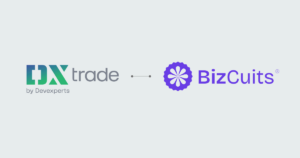Novatus publishes EMIR REFIT Readiness Report: 2 in 5 UK firms have no plan
“If firms are unprepared and don’t have technology in place, there is a real risk that remediation will be a considerable (and costly) long-term problem.”

Novatus Advisory, a provider of RegTech solutions for financial services firms, has released its EMIR REFIT Readiness Report, which found that two in five firms are yet to make plans for EMIR REFIT.
The European Market Infrastructure Regulation (EMIR) Refit is designed to amend and simplify European Markets infrastructure. It has brought with it major changes, particularly regarding reporting standardisation on the ISO 20022 standard and a significant increase in reporting fields from 129 to over 200.
EMIR Refit will enter into application on 29 April 2024
“Lack of preparedness is a major threat to the market”
Arguing that lack of preparedness is a major threat to the market, the research study of 100 market participants assessed the level of readiness of UK-based companies for new EMIR REFIT rules.
Research was undertaken during Q4 2022, after the announcement of the EU go-live date of 29 April 2024, but prior to the European Securities and Markets Authority (ESMA) releasing its guidelines and technical documentation providing clarification around the EMIR REFIT rules. 100 decision-makers for transaction reporting in the UK were surveyed.
The report identified lack of preparedness, technological challenges, and risk of remediation as threats to the market. External support may bee needed for an effective implementation of the new rules.
Matthew Ranson, Partner and co-founder of Novatus, said: “Due to the vast number of changes the regulation is bringing time is already tight for firms to be compliant. Remediation is clearly an issue that many respondents have faced under the current regime, and this is only set to become more of a problem if firms do not implement changes quickly. If firms are unprepared and don’t have technology in place, there is a real risk that remediation will be a considerable (and costly) long-term problem”.
Francis Stroudley, Director and Head of Transaction Reporting at Novatus, added: “The need for external support and guidance regarding the implementation of EMIR REFIT is clear. This not only points to a need for a much wider ecosystem of providers across EMIR REFIT, but our research also demonstrates that many firms feel they don’t have the necessary expertise or headcount to deliver the changes brought about by the regulation.”
Four takeaways from the EMIR REFIT Readiness Report
1. Lack of preparedness
Many firms seem to be behind the curve when it comes to preparing for the new rules. While everyone surveyed has read the requirements, 21% are still unsure of what will be required in practice. A significant number currently have no action plan in place. Of those who intend to manage the reporting process themselves, 37% have considered the requirements but have no action plan, while 3% haven’t even started considering the requirements, meaning two in five had no plan in place.
This puts many firms at risk of non-compliance once the rules are in force, or of rushing implementation and getting it wrong. With only 56% thinking that 18 months is enough time for implementation, the report points to real concerns about readiness.
2. Complex technological challenges
The number of reporting fields under the revised regulation is increasing from 129 to 203, which brings with it the need to ensure a robust tech solution is in place to correctly reconcile, and enable accurate data consumption and reporting. The fact that firms will be required to use an automated XML reporting solution complying with ISO 20022 also adds to the technological complexity. The volume of new data fields and the scale of the tech build required were identified as the two largest challenges facing businesses.
3. Risk of remediation
If firms find they haven’t met the requirements and/or don’t have the technology in place (and fully tested) by the EU go-live date, there is a risk that they will spend a significant amount of time and money remediating issues after that. In addition, to the risk of enforcement action from the regulator.
The research shows that this is already the case under the existing EMIR rules. Since initial updates to the rules came into force in late 2017, 90% of respondents have had to review or assess how they report, with 76% still undertaking ongoing remediation.
4. The need for external support
It is evident that the majority of firms are turning to external partners for support with EMIR REFIT implementation and are adopting different approaches in this regard. From all our respondents, 59% intend to self-report, while 41% plan to delegate to third-parties.









